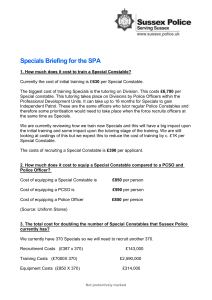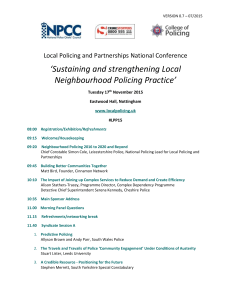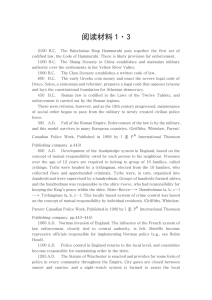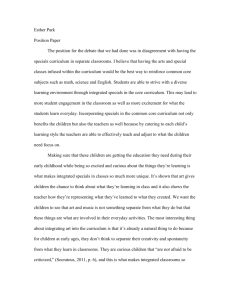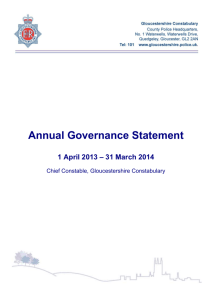History of a Special
advertisement
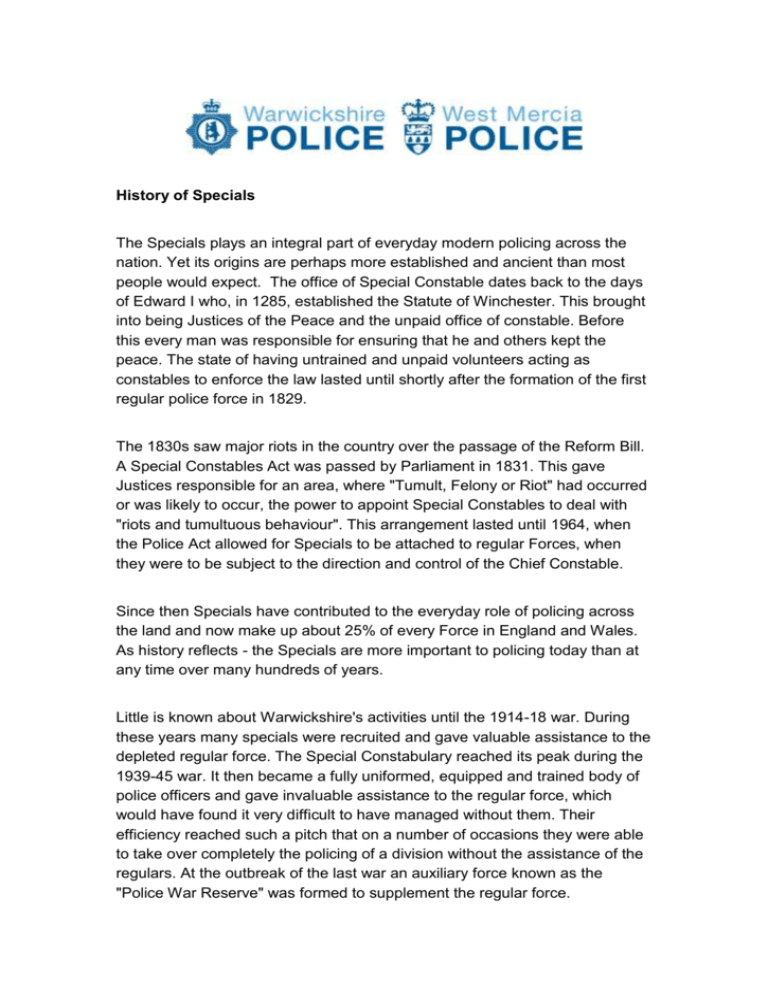
History of Specials The Specials plays an integral part of everyday modern policing across the nation. Yet its origins are perhaps more established and ancient than most people would expect. The office of Special Constable dates back to the days of Edward I who, in 1285, established the Statute of Winchester. This brought into being Justices of the Peace and the unpaid office of constable. Before this every man was responsible for ensuring that he and others kept the peace. The state of having untrained and unpaid volunteers acting as constables to enforce the law lasted until shortly after the formation of the first regular police force in 1829. The 1830s saw major riots in the country over the passage of the Reform Bill. A Special Constables Act was passed by Parliament in 1831. This gave Justices responsible for an area, where "Tumult, Felony or Riot" had occurred or was likely to occur, the power to appoint Special Constables to deal with "riots and tumultuous behaviour". This arrangement lasted until 1964, when the Police Act allowed for Specials to be attached to regular Forces, when they were to be subject to the direction and control of the Chief Constable. Since then Specials have contributed to the everyday role of policing across the land and now make up about 25% of every Force in England and Wales. As history reflects - the Specials are more important to policing today than at any time over many hundreds of years. Little is known about Warwickshire's activities until the 1914-18 war. During these years many specials were recruited and gave valuable assistance to the depleted regular force. The Special Constabulary reached its peak during the 1939-45 war. It then became a fully uniformed, equipped and trained body of police officers and gave invaluable assistance to the regular force, which would have found it very difficult to have managed without them. Their efficiency reached such a pitch that on a number of occasions they were able to take over completely the policing of a division without the assistance of the regulars. At the outbreak of the last war an auxiliary force known as the "Police War Reserve" was formed to supplement the regular force. Many of its members had previously been Special Constables. They were paid and performed full time duty alongside the Regulars. The "Police War Reserve" gave invaluable service and was not disbanded until after the cessation of hostilities.
